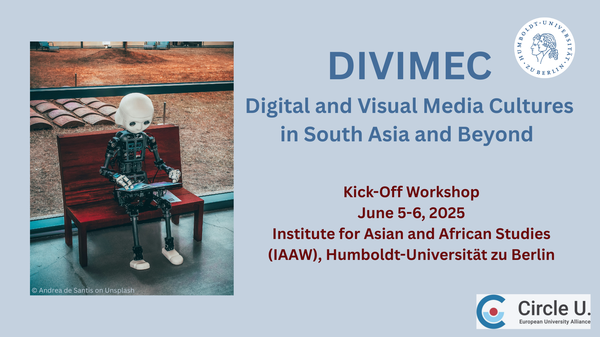Digital and Visual Media Cultures in South Asia and Beyond (DIVIMEC - Circle U)
In recent years, India has undergone a digital transformation, often referred to as the "India's Digital Revolution". It is clear that this rapid development and the emerging infrastructures have had both inclusive and exclusive effects on society and institutions in India. Similar dynamic processes can also be observed in other South Asian societies, such as Bangladesh, Nepal, and Pakistan. However, considering cross-border interdependencies, global mobilities, and the growing diaspora communities in Europe, we do not view South Asia as a territorially fixed region, but rather as a transregional "area in motion." All of these "digital revolutions" and the media cultures closely associated with them have both empowering and marginalizing effects on the respective societies. More recently, competition in the field of artificial intelligence has also come to the forefront, with AI centers currently being established across South Asia. Despite significant improvements for many citizens, a digital divide persists, particularly in disadvantaged communities and rural areas. Given the rise of authoritarian tendencies and the role of digital communication within social movements, the far-reaching consequences of this transformation for democracy and civil society have been widely discussed. However, there are two aspects that deserve more attention and will be the focus of our collaboration: 1) the role of digital platforms and their daily interactions with less privileged communities, including emerging regional platforms, and 2) the impact of digital technology on visual media and communication both within and beyond South Asia. We recognize the profound impact of digital transformation on a closely interconnected world as a central challenge for research-based student education. It is our mission to address this challenge collaboratively within the Circle U framework, and we aim to include more partner institutions in the coming years. During a two-day kick-off workshop in June 2025, the four Circle U partners and colleagues from Indian universities will outline their future cooperation in the areas of (1) teacher and student mobility, (2) jointly organized COIL formats, and (3) collaborative research in the field of digital media and visual cultures in South Asia and beyond.


